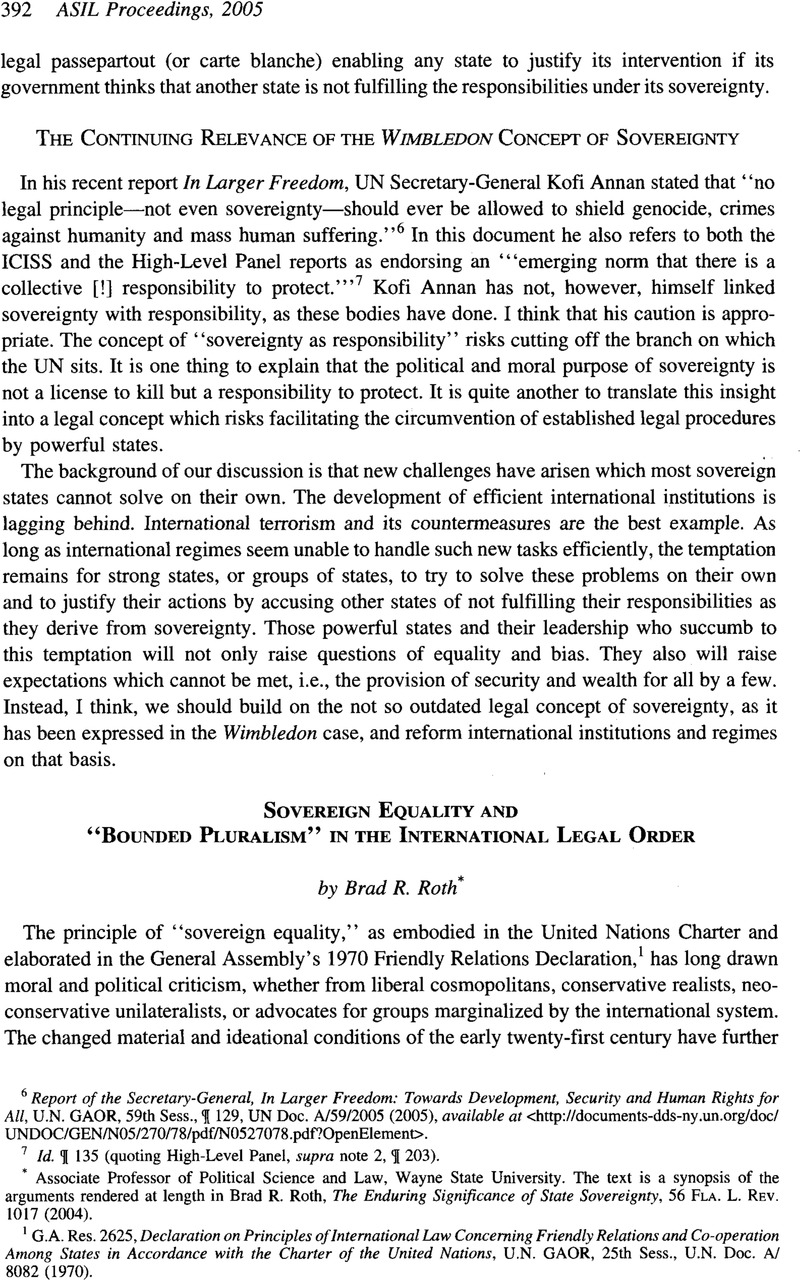No CrossRef data available.
Published online by Cambridge University Press: 28 February 2017

1 G.A. Res. 2625, Declaration on Principles of International Law Concerning Friendly Relations and Co-operation Among States in Accordance with the Charter of the United Nations, U.N. GAOR, 25th Sess., U.N. Doc. A/ 8082 (1970).
2 See generally Roth, Brad R., Governmental Illegitimacy in Internation al Law 136 –49 160 –71 253 –354(1999).Google Scholar
1 Reisman, W. Michael, Sovereignty and Human Rights in Contemporary International Law 84 AJIL 866 875 (1990)Google Scholar.
4 Reisman, W. Michael, Why Regime Change Is (Almost Always) a Bad Idea 98 AJIL 516–17 516 (2004). (“ Our international legal system is scarcely imaginable without” territorial communities having the right to govern themselves “without interference … . [S]tate sovereignty prevails in all but the most egregious instances of widespread human rights violations … .”)Google Scholar